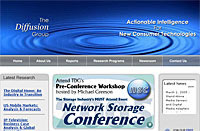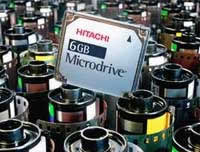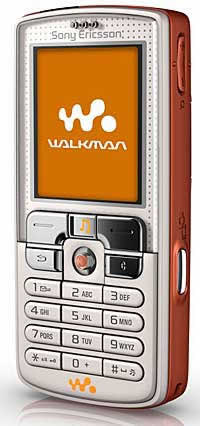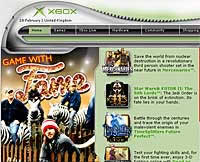 Evidence is beginning to amass that two of the most hyped products in the early digital home market will be lucky if they manage to reach niche market status in the next few years.
Evidence is beginning to amass that two of the most hyped products in the early digital home market will be lucky if they manage to reach niche market status in the next few years.
Not so long ago, people were getting very excited by media servers and digital media adapters. They were the future. And then, err, people kinda forgot about them.
So what happened?
According to new research from The Diffusion Group, it seems that despite the products being well-hyped, widely discussed and blessed with encouraging early forecasts from a number of research firms, the devices have suffered from extremely limited demand.
Moreover, the report concludes that demand for both these technologies will remain limited and that what unique functionality these solutions do offer will be quickly integrated into other platforms.
“It is not that this type of functionality is undesirable,” said Michael Greeson, President of The Diffusion Group. “The premise of networking stored digital media content to multiple devices in the home is valid, but consumers aren’t looking for separate devices to enable this experience.
Instead, the applications and benefits enabled by these two platforms will be increasingly integrated into devices with which consumers are more familiar – such as DVD players that are now evolving into DVD-recorders or set-top boxes with built-in hard-drives and integrated networking.”
“While media servers were originally positioned to be the hub of the digital home, demand for these solutions has never gotten off the ground.”
Although Windows Media Center PCs have proved more popular, Greeson asserts that this is simply down to normal PC replacement cycles rather than consumers finding anything particularly compelling about the concept.
Other media server platforms have been much less successful, although the push of high-end digital set-top boxes by cable and satellite video service providers offers a case for optimism.
“However,” says Greeson, “this is a push model, where the equipment is subsidised by the service provider in order to generate digital media service revenue, as opposed to a ‘pull’ model where consumers are so enamoured with the device that they run to the retail store to purchase one.”
When it comes to digital media adapters or DMAs, the Diffusion Group paints a gloomy picture.
Introduced a couple of years ago, the idea was to make it easy to share content from the PC to other media devices in the home, such as a TV or stereo using a DMA. But their techie-tastic appeal failed to win over punters.
“Not long ago, there were ten to fifteen companies offering DMAs,” said Gary Sasaki, a contributing analyst with The Diffusion Group and President of DIGDIA, a media consultancy.
“At this year’s CES, DMAs were hard to find. Part of the reason for the premature demise of DMAs is that their functionality appeals mostly to early-adopter or technology-savvy buyers. Additionally, and somewhat similar to media servers, the functionality of DMAs is slowly getting integrated into other more familiar product categories.”
The report suggests that we’ve got an industry in fast transition, with early, stand-alone technologies being picked clean for their useful ideas and then incorporated into more consumer-friendly converged products.
 Hitachi has announced that it will ramp up its output of consumer hard drives this year as it strives to take advantage of the soaring storage demands of MP3, PVR and mobile phone markets.
Hitachi has announced that it will ramp up its output of consumer hard drives this year as it strives to take advantage of the soaring storage demands of MP3, PVR and mobile phone markets. A smaller version of the current 1-inch drive, code-named Mikey, comes out later this year, with capacious 2.5-inch drives – holding up to 500GB – being targeted at makers of DVRs and home servers.
A smaller version of the current 1-inch drive, code-named Mikey, comes out later this year, with capacious 2.5-inch drives – holding up to 500GB – being targeted at makers of DVRs and home servers. “Hitachi’s intensified focus in the CE segment hard drive will mean good news for end-users as we work on developing smaller, high-capacity hard drives that are more rugged, require less power and cost less.”
“Hitachi’s intensified focus in the CE segment hard drive will mean good news for end-users as we work on developing smaller, high-capacity hard drives that are more rugged, require less power and cost less.” Microsoft co-founder and chairman, Bill Gates received an honorary knighthood from ‘er Majesty the Queen today.
Microsoft co-founder and chairman, Bill Gates received an honorary knighthood from ‘er Majesty the Queen today. Gates and his wife Melinda are well known for their charitable work, investing millions in research for an Aids vaccine and a scholarship scheme to enable the brightest students to go to Cambridge University.
Gates and his wife Melinda are well known for their charitable work, investing millions in research for an Aids vaccine and a scholarship scheme to enable the brightest students to go to Cambridge University. TowerStream, a US provider of fixed-wireless broadband services has announced the successful completion of Mobile Voice over IP (VoIP) over a WiFi network.
TowerStream, a US provider of fixed-wireless broadband services has announced the successful completion of Mobile Voice over IP (VoIP) over a WiFi network. Congratulations to Bernard Herbert of Belgium, as he has won the Skype-friendly Siemens USB adaptor and Handset combo in our recent readers competition. When we spoke to Bernard, via Skype of course, he was delighted, “It’s going to be of help every day,” he enthused. It’s currently not available in Belgium, so Bernard will have a one-off.
Congratulations to Bernard Herbert of Belgium, as he has won the Skype-friendly Siemens USB adaptor and Handset combo in our recent readers competition. When we spoke to Bernard, via Skype of course, he was delighted, “It’s going to be of help every day,” he enthused. It’s currently not available in Belgium, so Bernard will have a one-off. Jeremy Allaire, co-founder of Allaire Corp and one of the big shakers behind the successful ColdFusion Web technology, is unveiling a company that he hopes will make Internet movie/TV downloads a standard feature on home TV sets.
Jeremy Allaire, co-founder of Allaire Corp and one of the big shakers behind the successful ColdFusion Web technology, is unveiling a company that he hopes will make Internet movie/TV downloads a standard feature on home TV sets. Allaire explained his plans: “The online service will operate with a consumer-facing service that provides access to programming and content published in the service, and will also provide a very rich service to publishers and rights-holders interested in a direct-to-consumer distribution path for video products. The service will also provide tools to Web site operators generally, who are interested in economically participating in the online video revolution.”
Allaire explained his plans: “The online service will operate with a consumer-facing service that provides access to programming and content published in the service, and will also provide a very rich service to publishers and rights-holders interested in a direct-to-consumer distribution path for video products. The service will also provide tools to Web site operators generally, who are interested in economically participating in the online video revolution.” Unlike the
Unlike the  Frontier Silicon, the British company that makes chips for mobile digital television and digital radio products, has completed it US$28 million (€21m/£14.5m) investment round funding.
Frontier Silicon, the British company that makes chips for mobile digital television and digital radio products, has completed it US$28 million (€21m/£14.5m) investment round funding. “This latest investment allows us to aggressively target and drive market share in the emerging mobile digital television market in the same way that we have established our chips in over 70 percent of DAB digital radios,” said Anthony Sethill.
“This latest investment allows us to aggressively target and drive market share in the emerging mobile digital television market in the same way that we have established our chips in over 70 percent of DAB digital radios,” said Anthony Sethill. A deal between a search technology company and an online film distributor could be a further step towards the next Big Thing on the Web: search engines that let you find movies and TV episodes by what is said within them – and then buy or rent them.
A deal between a search technology company and an online film distributor could be a further step towards the next Big Thing on the Web: search engines that let you find movies and TV episodes by what is said within them – and then buy or rent them. With TV networks starting to distribute more of their productions on the Web and the growth of broadband-enabled, home media PCs there’s clearly a growing demand for consumers to be able to access and download content legally.
With TV networks starting to distribute more of their productions on the Web and the growth of broadband-enabled, home media PCs there’s clearly a growing demand for consumers to be able to access and download content legally. When Sony start slapping the world famous Walkman mobile music brand on their products, you know that they mean business, and their new Sony Ericsson W800 has been proudly trumpeted as the first mobile phone to combine a high-quality digital music player and a 2 Megapixel camera.
When Sony start slapping the world famous Walkman mobile music brand on their products, you know that they mean business, and their new Sony Ericsson W800 has been proudly trumpeted as the first mobile phone to combine a high-quality digital music player and a 2 Megapixel camera. Sadly, we’re going to have to wait a while before we can start adjusting our lifestyle behaviour – the release of the Sony Ericsson W800 is not scheduled until the third quarter of 2005
Sadly, we’re going to have to wait a while before we can start adjusting our lifestyle behaviour – the release of the Sony Ericsson W800 is not scheduled until the third quarter of 2005 Microsoft is teaming up with one of Japan’s hotshot video game developers to create games for its next-generation video game console, XBox2 – a sure-fire sign that it’s determined to grab a fat slice of the Japanese market.
Microsoft is teaming up with one of Japan’s hotshot video game developers to create games for its next-generation video game console, XBox2 – a sure-fire sign that it’s determined to grab a fat slice of the Japanese market. A founding member of former video game software developer Square Co., the 42-year-old is famed for creating the role-playing series, ‘Final Fantasy’, which has shifted more than 60 million copies to date.
A founding member of former video game software developer Square Co., the 42-year-old is famed for creating the role-playing series, ‘Final Fantasy’, which has shifted more than 60 million copies to date.